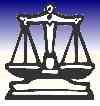
IT WAS A REAL HONOR AND PRIVILEGE being on tonight's edition of ALAN PAGUIA's new television talk show on the Global News Network (Destiny Cable) because his main guest was General Francisco Gudani, the Marine General commanding the First Infantry Battalion of the Philippine Marines in Lanao province back in 2004 and one of the most credible whistleblowers from the Hello Garci Tape scandal). He is a true officer and a gentleman who has served his country with bravery and integrity fighting both terrorist insurgents and the equally terrible perpetrators of electoral fraud in the 2004 elections. People will recall that it was in the attempt to silence his testimony before the Senate National Defense investigating committees that the infamous Executive Order No. 464 Gag Order was promulgated by President Gloria Macapagal Arroyo. Now retired, Gen. Gudani spends much of his time promoting Christian fellowship among the soldiers and officers of the Philippine Military. On the show I made the point oft-repeated on this blog that the Hello Garci wiretapping scandal is as much about electoral fraud as it is about the despicable and dishonorable practice of prostituting the Armed Forces of the Philippines to partisan political purposes. As such, the illegal Isafp wiretapping that was revealed during that scandal represents violations against National Security that seriously damages the integrity, moral standing and fighting capabilities of the Armed Forces.
 ANOTHER KIDNAPPING ALREADY! Oh by the way, it looks like the Abu Sayyaf didn't get enough from the kidnapping of Ces Drilon (though they got the usual major propaganda payoff from the Philippine Daily Innuendo and Khaddafy Janjalani's ole squeeze Arlyn de la Cruz). So they just kidnapped five employees of the Basilan Electric Cooperative yesterday. One of the five hostages was released late yesterday, just like they did with Ces Drilon's Angelo Valderama (probably to deliver the ransom demand while showing off their "humanitarian" streak). But I'm afraid these poor guys could get the axe if their relatives (or Ronnie Puno and the DILG) don't come up with millions in ransom!
ANOTHER KIDNAPPING ALREADY! Oh by the way, it looks like the Abu Sayyaf didn't get enough from the kidnapping of Ces Drilon (though they got the usual major propaganda payoff from the Philippine Daily Innuendo and Khaddafy Janjalani's ole squeeze Arlyn de la Cruz). So they just kidnapped five employees of the Basilan Electric Cooperative yesterday. One of the five hostages was released late yesterday, just like they did with Ces Drilon's Angelo Valderama (probably to deliver the ransom demand while showing off their "humanitarian" streak). But I'm afraid these poor guys could get the axe if their relatives (or Ronnie Puno and the DILG) don't come up with millions in ransom!Meanwhile the CPP NPA NDF cell and the leftist ideologues inside the biggest tabloid in the country are working overtime to complain about "US military presence" in the form of the USS Ronald Reagan, which is assisting in rescue and recovery operations at the capsized MV Princess of the Stars. In this connection, there is also the utter gracelessness of the blogger at Uniffors.
 THE MYANMAR SYNDROME: Lots of the same people who marveled at the utter stupidity of the military junta in Myanmar for rejecting foreign aid after a major natural disaster are today doing a Burmese hat dance over the generous aid being offered by the United States of America in sending the nuclear powered aircraft carrier USS Ronald Reagan to help in the aftermath of Typhoon Frank. Men in skirts and Funny Hats and voodoo incantations are apparently preferred over helicopters and search aircraft. To hell (or heaven) with the victims and their grieving relatives. Let them have a holy biscuit and magic wine...
THE MYANMAR SYNDROME: Lots of the same people who marveled at the utter stupidity of the military junta in Myanmar for rejecting foreign aid after a major natural disaster are today doing a Burmese hat dance over the generous aid being offered by the United States of America in sending the nuclear powered aircraft carrier USS Ronald Reagan to help in the aftermath of Typhoon Frank. Men in skirts and Funny Hats and voodoo incantations are apparently preferred over helicopters and search aircraft. To hell (or heaven) with the victims and their grieving relatives. Let them have a holy biscuit and magic wine...MISPERCENTING THE DATA: GMA TV News just posted a Praise Release from the Dept. of Education (PDF) which reports increases in the National Achievement Test scores of public school students.
Some 1.64 million students from 30,396 public schools took the NAT last March.No, gentle Reader, you are not having a delusional fit of arithmetic innumeracy, because 57.90% minus 51.58% happens to be equal to 12.26% of 51.58%, and 47.67% minus 44.29% is 6.24% of 44.29%! So it's true, the PERCENT change in the percent score was 12.26% percent per percent! It's a sneaky way of turning single digit gains into A MIRAGE of double digit increases.
In the key subjects tested, students showed the biggest improvement in Science with a percentage increase of 12.26 percent, from an MPS of 51.58 percent in 2007 to 57.90 percent in 2008. It was followed by big strides in Filipino and HEKASI which posted an improvement of 10.84 percent and 10.47 percent, respectively.
Overall, the average increment in MPS in Math, Science and English among Grade 6 students was 6.24 percent, from last year's MPS of 44.29 percent to 47.67 percent this year.
There is no known name for this form of self-serving statistical fudging, where it is the percent change in the percent statistic that is percented, err, presented, so I shall invent a neologism for it: Philippinnumeracy!






